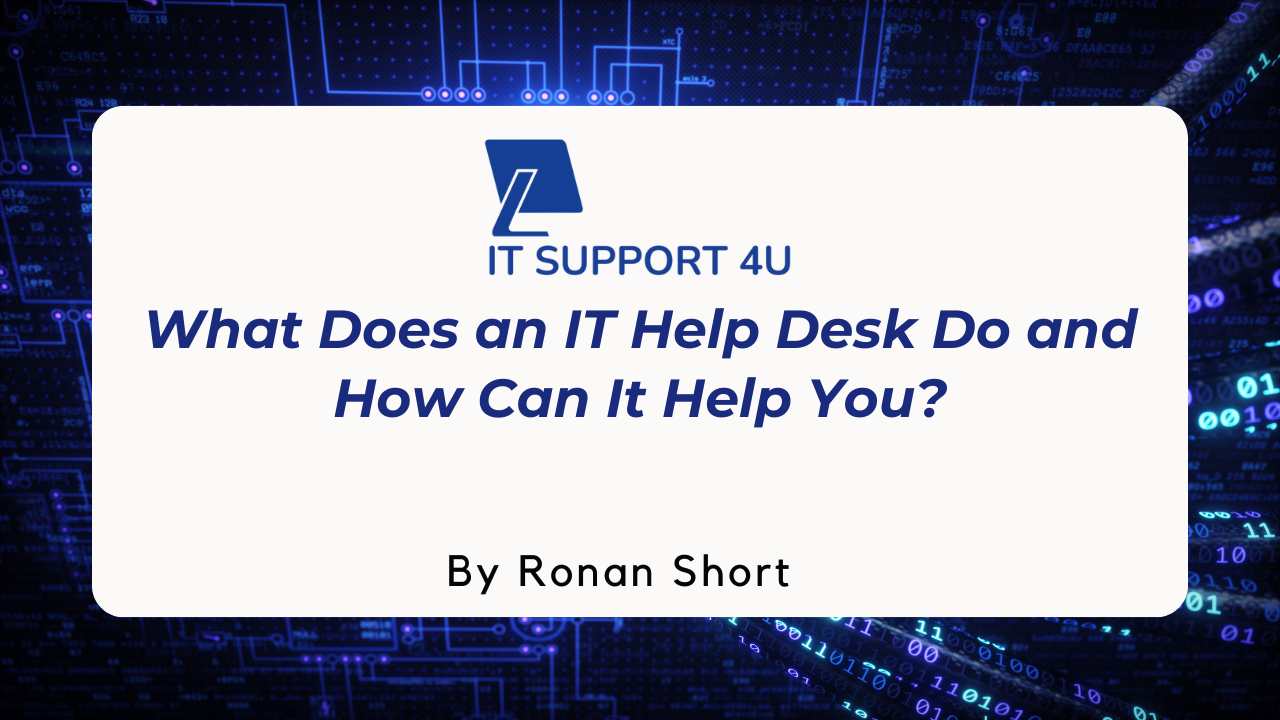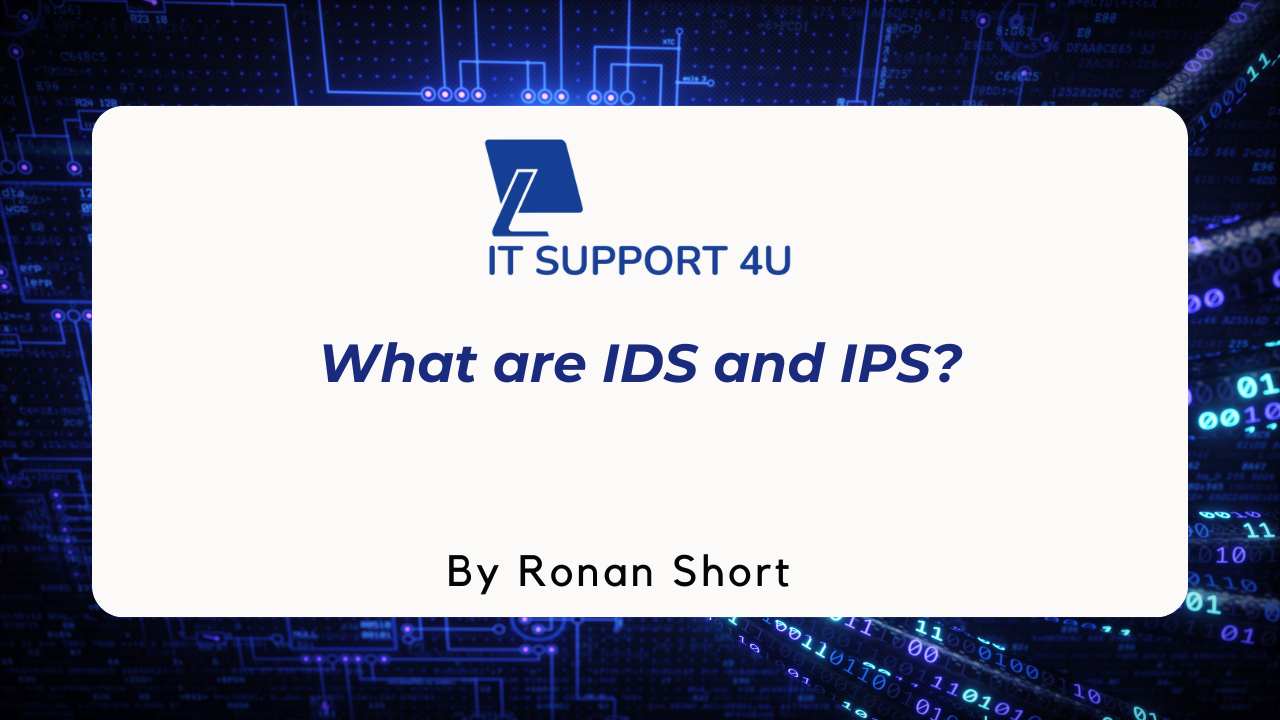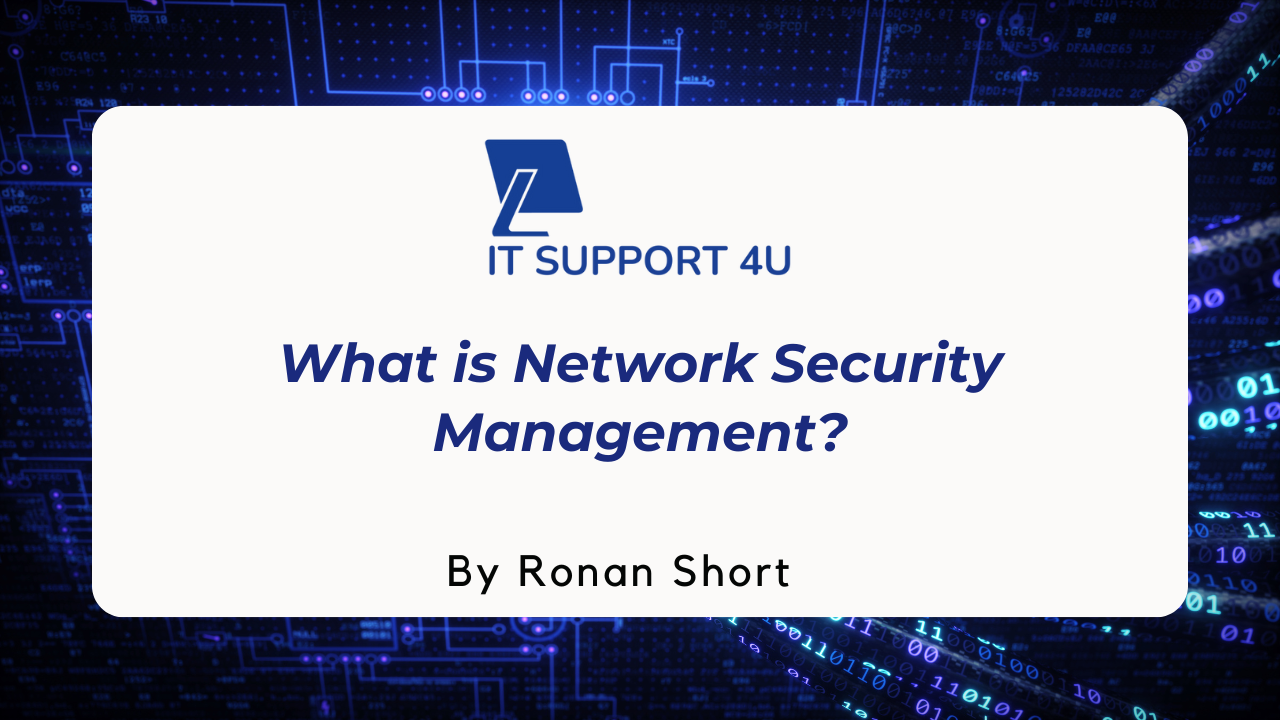Running a business in this digital age comes with its share of threats to your network. We know how important it is to keep your information safe because hacking is becoming more frequent and expensive.
Today, this article will teach you how to protect your business from online attacks. So, keep reading to learn how to keep your business safe!
Key Takeaways
- Secure all wireless access points to protect your business network from unauthorised entry. Configure routers with the WPA2 security protocol, change default passwords regularly, and update router software.
- Set up or strengthen a network firewall by installing reliable firewall software on each device, configuring settings to block unauthorised access, enabling logging and monitoring features, and creating rules for device and application access.
- Keep hardware, software, and apps updated with the latest patches and security updates to protect against vulnerabilities.
- Train employees on cybersecurity best practices such as strong password creation, recognizing phishing scams, regular software updates, safe browsing habits, data backups, and physical security measures.
Best Practices to Improve Business Network Security
Secure all wireless access points, ensuring that strong passwords are in place and using the latest encryption technology for maximum protection.
Secure all wireless access points
We are always mindful of the importance of securing all wireless access points across our business network. Here's how we do it:
- We configure our network routers to use WPA2, a reliable security protocol.
- We frequently change default passwords to prevent unauthorised entry into our network from outside sources.
- We don't neglect router updates; these ensure optimal performance and secure any known vulnerabilities.
- DHCP is either disabled or heavily restricted, limiting the chances of a cyberattack.
- Regular checks are conducted on all wireless access points to ensure they remain secure and up-to-date.
- Our router enjoys physical security too; we locate it in a spot inaccessible to unwelcome visitors.
Set up or strengthen a network firewall
To make our business network more secure, we need to set up or strengthen a network firewall. Here are some important steps to take:
- Install a reliable firewall on each user's PC or laptop to protect the network from external threats.
- Configure the firewall settings to block unauthorised access and prevent malicious software from entering the network.
- Regularly update the firewall software to ensure it can effectively detect and block new types of threats.
- Enable logging and monitoring features on the firewall to track any suspicious activities or attempts to breach the network.
- Create rules and policies within the firewall to control which devices and applications can access the network.
- Conduct regular testing and assessments of the firewall's effectiveness in protecting our business network.
Keep hardware, software, and apps updated
We need to regularly update our hardware, software, and apps to ensure the security of our business network. By keeping everything up-to-date, we can benefit from the latest security patches and fixes that help protect against vulnerabilities. This includes updating firmware and software on routers and other network devices.
It is also important to keep an eye on updates for the applications we use in our business operations. Regularly checking for updates and installing them promptly will help safeguard our network from potential threats.
Train employees on cybersecurity best practices
To enhance the security of your business network, it is essential to train your employees on cybersecurity best practices. By educating them about the importance of network security and how to identify potential threats, you can significantly reduce the risk of cyberattacks. Here are some key practices to include in your training:
- Teach them about strong password creation: Instruct employees on the importance of using unique and complex passwords for their accounts. Encourage them to avoid using personal information or common phrases.
- Raise awareness about phishing scams: Educate employees on how to recognize fraudulent emails or messages that attempt to trick them into revealing sensitive information. Advise them against clicking on suspicious links or downloading attachments from unknown sources.
- Promote regular software updates: Emphasise the significance of keeping all devices and software up-to-date with the latest patches and security updates. This ensures that any known vulnerabilities are promptly addressed.
- Highlight the dangers of public Wi-Fi: Warn employees about the potential risks of connecting to unsecured Wi-Fi networks, especially when accessing company resources or handling sensitive data outside of the office.
- Encourage safe browsing habits: Remind employees not to visit suspicious websites or click on pop-up ads, as they can be a source of malware and other cyber threats.
- Stress the importance of data backups: Emphasise the need for regular backups of important files and documents to prevent data loss in case of a security breach or system failure.
- Teach them about physical security measures: Discuss strategies for securing physical assets such as laptops, smartphones, and USB drives, including strategies such as password-protecting devices and avoiding leaving them unattended in public places.
Perform regular network audits
Regular network audits are an essential part of enhancing the security of your business network. Here are some steps you can take to perform these audits effectively:
- Conduct vulnerability assessments: Regularly scan your network for any potential weaknesses or security holes. This will help you identify vulnerabilities before they can be exploited by cybercriminals.
- Review access controls: Ensure that only authorised individuals have access to sensitive data and resources within your network. Regularly review user permissions and revoke access for employees who no longer need it.
- Monitor network traffic: Use tools and software to monitor network traffic for any suspicious activity or signs of a breach. This will allow you to detect and respond to any potential threats in a timely manner.
- Update security policies: Regularly review and update your organisation's security policies, ensuring they align with industry best practices and address any emerging threats or vulnerabilities.
- Test incident response procedures: Regularly test your organisation's incident response procedures to ensure they are effective in mitigating the impact of a potential security incident.
- Educate employees: Provide ongoing training and education to employees on best practices for network security, such as creating strong passwords, recognizing phishing emails, and avoiding risky online behaviour.
Advanced Techniques to Enhance Business Network Security
Now, let's have a look at some advanced techniques to enhance your business network security:
Refine identity management architecture
To enhance the security of your business network, it's important to refine your identity management architecture. By improving the way you manage and control user identities within your network, you can effectively protect against unauthorised access and potential breaches. Consider implementing the following measures:
- Implement two-factor authentication: Require users to provide an additional form of verification, such as a unique code sent to their mobile device, along with their regular login credentials.
- Enforce strong password policies: Ensure that users create complex passwords that include a combination of letters, numbers, and special characters. Regularly prompt users to update their passwords to further strengthen security.
- Utilise role-based access controls: Assign specific permissions and access levels based on each user's role within the organisation. This ensures that individuals only have access to the resources necessary for their job responsibilities.
- Monitor user activity: Implement tools or software that track and monitor user behaviour within the network. This can help detect any suspicious activities or unauthorised attempts to access sensitive information.
- Regularly review and update user privileges: Conduct periodic reviews of user accounts and privileges to ensure that they align with current roles and responsibilities. Remove unnecessary privileges promptly to minimise potential risks.
Encrypt all endpoints
To enhance the security of your business network, it is crucial to encrypt all endpoints. This helps protect sensitive data and prevent unauthorised access. Here are some steps you can take to ensure endpoint encryption:
- Enable full disk encryption: Use reliable encryption software to encrypt the entire hard drive on each device connected to your business network. This ensures that even if a device is lost or stolen, the data remains protected.
- Implement file-level encryption: Encrypt individual files and folders containing confidential information. This provides an additional layer of security, especially for files shared between employees or stored in cloud storage services.
- Use strong passwords and authentication measures: Ensure that each endpoint has a strong password and enforce two-factor authentication whenever possible. This reduces the risk of unauthorised access, even if a device falls into the wrong hands.
- Regularly update encryption software: Keep your endpoint encryption software up-to-date with the latest patches and security updates. This helps address any vulnerabilities that might be exploited by cybercriminals.
- Educate employees on proper use: Train your staff on how to effectively use endpoint encryption tools and emphasise the importance of safeguarding their devices. Encourage them to report any suspicious activity or potential security breaches immediately.
Implement unified security management
Implementing unified security management is essential for enhancing the security of your business network. It allows you to streamline and centralise the management of various security measures, making it easier to monitor and address potential threats effectively. Here are some key steps to implement unified security management:
- Utilise a comprehensive security platform: Invest in a robust security platform that offers features such as intrusion detection, vulnerability assessment, and malware protection. This will enable you to detect and respond to potential threats in real-time.
- Ensure consistent policies: Establish uniform security policies across all devices, systems, and applications within your network. This ensures that every aspect of your network adheres to the same high-security standards.
- Implement two-factor authentication: Require employees to use an additional layer of verification, such as a unique code sent to their mobile device, when accessing sensitive data or systems. This adds an extra level of protection against unauthorised access.
- Monitor network activity: Use advanced monitoring tools and technologies to track network activity continuously. This allows you to identify any suspicious behaviour or anomalies that may indicate a breach or attack on your network.
- Regularly update and patch systems: Keep all software, firmware, and applications up-to-date with the latest patches and updates provided by vendors. This helps close any security vulnerabilities that could be exploited by cybercriminals.
- Train employees on unified security practices: Educate your staff about the importance of unified security management and provide them with training on best practices for maintaining a secure network environment.
Upgrade to the latest endpoint protection
To further enhance your business network security, it is crucial to upgrade to the latest endpoint protection. This will help safeguard your network and devices from emerging threats and vulnerabilities. Here are some key steps to consider:
- Stay updated: Ensure that all endpoints, including computers, laptops, and mobile devices, have the latest security patches and updates installed. Regularly check for new releases of antivirus software or other security tools.
- Utilise advanced threat detection: Invest in an endpoint protection solution that offers real-time threat detection and prevention capabilities. This can help identify and block malware, ransomware, and other malicious activities before they harm your network.
- Implement behaviour-based analytics: Endpoint protection solutions with behaviour-based analytics can detect unusual patterns or behaviours on endpoints, helping to identify potential threats and mitigate them effectively.
- Enable device control: Configure your endpoint protection solution to restrict unauthorised access to devices connected to your business network. This includes USB drives, external storage devices, and other peripherals that may introduce malware or compromise network security.
- Educate employees: Train your employees on the importance of endpoint security and how they can contribute to a secure network environment. Teach them about common attack vectors, social engineering techniques, and best practices for securing their devices.
- Regularly monitor and update policies: Review and update your endpoint protection policies regularly to ensure they align with evolving cybersecurity best practices. This includes setting up password requirements, enforcing encryption protocols, and establishing access controls.
Consider using private IP addresses
To enhance the security of your business network, you should consider using private IP addresses. Private IP addresses are not accessible from the internet, making them less vulnerable to external threats.
By using private IP addresses, you can create a more secure and isolated network environment for your business. Additionally, using private IP addresses can help prevent unauthorised access and protect sensitive data from potential breaches.
Importance of Network Security
Network security is crucial as it shields businesses from cyber threats, prevents data breaches, protects sensitive information, and upholds the trust and reputation of the company.
Protects against cyber threats and data breaches
Implementing strong network security measures is crucial for protecting your business against cyber threats and data breaches. By securing your network, you create a barrier between potential hackers and your sensitive information, ensuring that it remains safe and confidential.
Regularly updating firmware and software on routers and other network devices helps to patch any known vulnerabilities, reducing the risk of unauthorised access. Additionally, fostering a cyber-aware culture within your organisation through employee training can help prevent common security breaches such as phishing attacks or malware infections.
With these proactive measures in place, you can safeguard your business from costly data breaches and maintain the trust of your customers.
Safeguards sensitive business information
Protecting sensitive business information is crucial for the security and success of any organisation. By implementing strong network security measures, you can safeguard your valuable data from cyber threats and potential breaches.
This involves setting up firewalls on all user devices to create a barrier against external risks, regularly updating firmware and software to patch vulnerabilities, and fostering a cyber-aware culture within your company.
It's also important to refine your identity management architecture and password technology to enhance network security measures. By prioritising these safeguards, you can ensure that your sensitive business information remains secure at all times.
Maintains the trust and reputation of the business
Maintaining the trust and reputation of your business is essential when it comes to network security. By implementing strong security measures, you show your customers and clients that their data is safe with you.
This not only protects against cyber threats and data breaches but also safeguards sensitive business information. When your network is secure, people feel more confident doing business with you, which can lead to increased customer loyalty and a positive reputation in the marketplace.
Conclusion
In conclusion, enhancing the security of your business network is crucial to protect against cyber threats and maintain the trust and reputation of your organisation. However, by implementing best practices such as securing wireless access points, setting up a network firewall, and regularly updating hardware and software, you can mitigate vulnerabilities and safeguard sensitive information.
Additionally, advanced techniques like refining identity management architecture and encrypting endpoints can further strengthen your network security measures. Remember that ongoing training for employees on cybersecurity best practices is essential to create a cyber-aware culture within your organisation.
So, with these steps in place, you can ensure a secure business network that withstands evolving threats. If you need help implementing these measures, contact us at IT Support 4U, an IT support company in Ireland that specialises in network security solutions.
Get an IT Plan Today!













